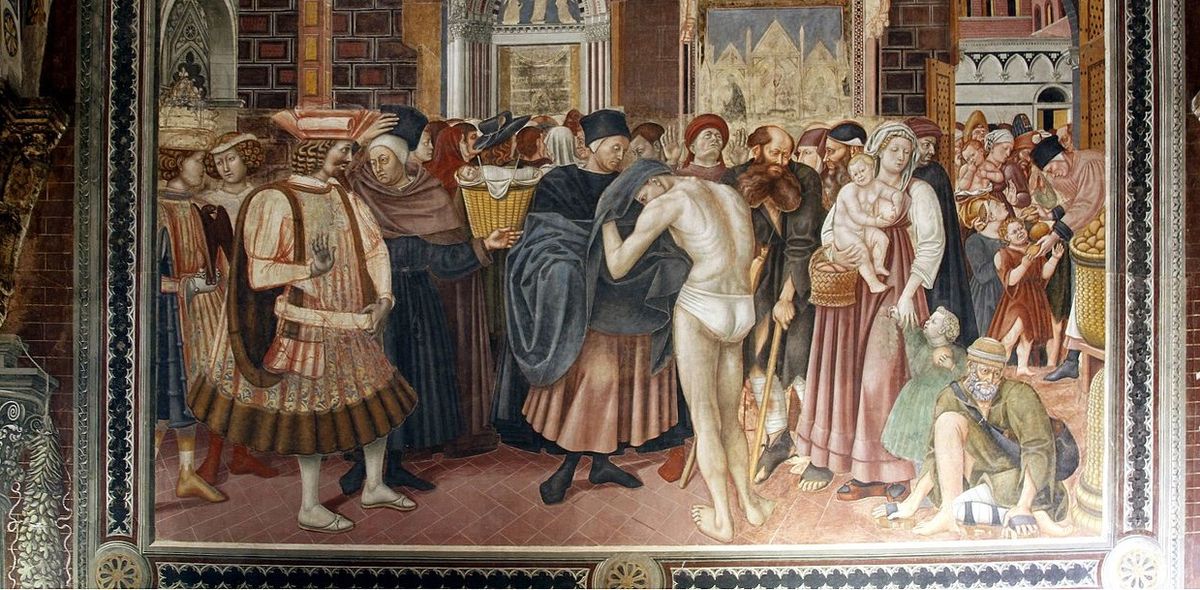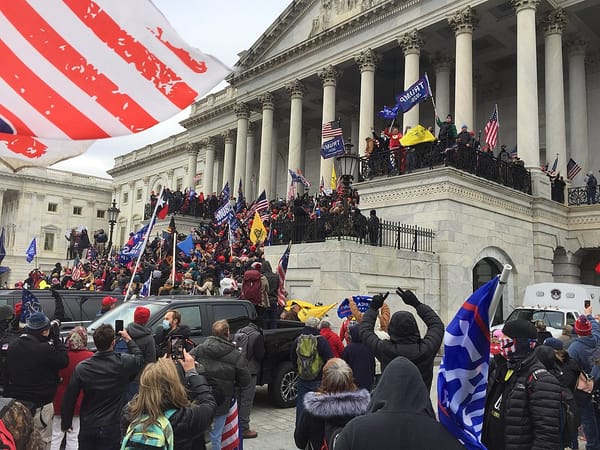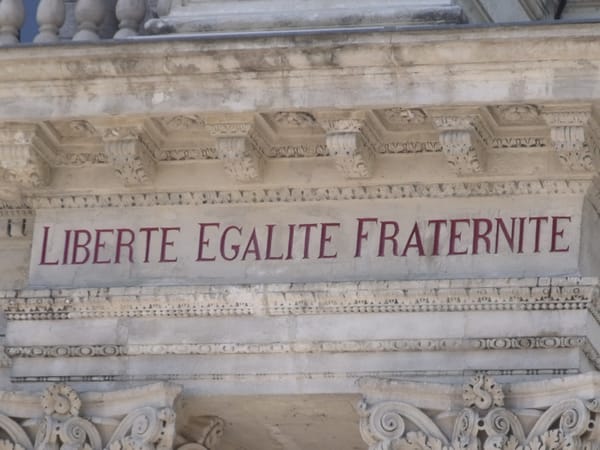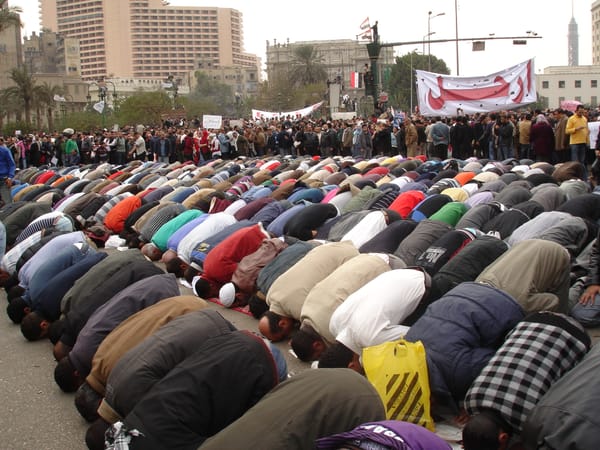Crime Comes From Poverty and Your Great-Great Grandparents Are Proof

When Alexandria Ocasio-Cortez was called a crude misogynistic epithet by Congressman Ted Yoho, the largely universal furur grew, rightly, upon the misogyny of the statement. Lost in this however, is what he was reacting to: her argument that the recent spike in crime in NYC was caused by the COVID-19 induced poverty and unemployment. This was what drew such a crude and visceral reaction from Congressman Yoho.
Whatever the opinion of a sexist Republican Congressman, the hard fact remains that poverty, and the lack of true economic possibilities for the many are indeed what almost always generate an uptick in criminal activity. This is no recent epiphany; the well-known relationship between poverty and crime goes back centuries. Many of your great-great grandparents, most of them immigrants, are proof as clear as any study or history book can offer.
“Crimes of Resource”, as I call them, remain the major source of crime throughout America as a whole, both presently and historically; that is, the simple and basic need for some resource amidst a throng of individuals who also require the same resource for themselves.
This struggle can be seen having played out across history in every conceivable combination of circumstances and characters. From the start of organized towns, cities and civilizations, into the 21st century and beyond, examples flood the literature, as well as the obvious solution for it. Marcus Aurelius, Roman emperor from AD 161 to 180, once proclaimed that “Poverty is the Mother of Crime.” In the Roman Empire, with such wealth and production, one could not help but notice the have-nots, from slaves, to servants, to simple plebeians. It is noteworthy that Rome possessed poor relief approximately 65 years prior to the time of Marcus Aurelius (Nerva is often credited with starting the tradition), meaning the concept predated Aurelius’s written word, as is nearly always true.
In Medieval Western Europe, to be a vagabond or vagrant was not only seen as dishonorable, but was also illegal in many places; the Treaty of Verdun (AD 843) stated that, “every man should have a lord”, with even the Pope and the various Princes being, in practice, beneath God himself. This logic insisted that every human not working in the service of others was simply a waste of productive potential and therefore, a waste of money and/or resources as well. Unsurprisingly in a world so disjointed and survivalistic, the fear of uprising or criminality always lingered, especially in the countryside where poverty was often exacerbated by relative isolation, lack of organization and economic or social development.
Evidence of the true reality for many can be understood through the literary Picaresque genre and its relations, of which were quite prevalent during these times; the amount of unemployed, transient people was clearly a fact of life, self evident, no matter the various, mixed economic systems at play across Europe. Despite the varyingly severe social structures of the time periods, poverty was prevalent and seen as a threat. It was not romantic per se, nor has it become so since. Ultimately, for the sake of economic and social order, something had to be done even then.
Consequently, poor relief was instituted in places like England with the Poor Relief Act of 1563 and its successors. Bruges, Belgium in 1565 is another example, while other cities like Paris would follow in the years to come. In Bruges, one can still see the beautiful stone and brick relief houses with bunks and food upon the canals, built by the wealthiest patrons of the city in their day. These first steps can be considered the earliest modern identification that poverty is rarely a self correcting issue and that its blowback can be severe if left untreated or unchecked.
At the turn of the 20th century, the United States was a land of growing cities and industry, composed of a vast array of ethnic groups, cultures, and social dynamics. Two waves of immigration had occurred in the history of the nation up to that point. The first occurred around the 1820’s, before the second impacted the nation in the 1840’s and 50’s; by the late 19th, and early 20th century, the “Third Wave” of American immigration, bringing Italian, Jewish, Slavic, and Mediterranean peoples and cultures into contact with Americans in never-before-experienced ways, had created a growing sentiment of xenophobia across the country. Immigrants prior to this point had been more consistently of Northern European background.
In communities from New York City to Chicago, Philadelphia, Boston and Baltimore, these newly emigrated families worked tirelessly to scrape by lives for themselves. Yet despite this toil, they consistently struggled and failed to move up the social and economic ladders. They often suffered from general destitution, extreme living and working conditions, poverty, prejudice and other extenuating factors.
The mixture of these hardships, as well as the lack of well articulated avenues for progress and growth likely created endless frustration for these people; ineluctably, these combined elements created environments which fostered the perception of criminality, both real and imaginary. A criminality born of poverty of which, like the poverty and vagrancy of Rome or the Middle Ages, was simply a symptom of the economic predicament within the cities or societies themselves, not the actual cause of the economic predicament. Without clear channels for progress, humans, much like water, will look to carve new paths for themselves entirely.
But with the coming Great Depression of 1929 and the abysmal Hoover administration’s response to it, new ideas and channels would begin to surface within America. In an effort to eliminate and combat the rise of poverty, and therefore criminality, as well as the conditions that slowed progress and wasted the ambition of humanity itself, America would need a New Deal.
FDR’s administration helped to create massive institutional and legislative changes, both within states and nationally. The Public Works Administration (PWA) would try to breathe life into the economy, spell joblessness and improve the infrastructure of cities and states simultaneously. Social Security would be created, child labor would be abolished, labor laws and rights would be instituted, a minimum wage and maximum work week would be created and enforced, while unions would grow in power and prominence too. No longer would workers have to fear state, federal or private armies when entangled in labor or union disputes. These innovations to be sure, were far from proactive; they attempted to fix the shame of the cities after decades of suffering by the people, and of wasted production and consumption from private business and government alike.
But they largely did help to create a societal foundation on which Americans, both new and old, could grow and develop together. In the 25 years after World War II, America experienced its greatest growth to date, what some economists call, “the golden age of Modern Capitalism”. These years are very much where the modern day American, cliched image of the stay-at-home mom and businessman dad, two children and a dog named Rex comes from.
During this time, as the descendants of these previously ostracized groups were able and allowed, socially and economically, to more fully integrate into American society, something remarkable, yet not surprising, occurred; these Americans, having grown up in a different world than their parents and grandparents, simply behaved and began to be treated like any other American. Some would grow and move to other cities, states and regions, further continuing the normalization and integration of these cultures and people into America. Others advanced professionally while staying in their old communities, which also began to be judged and observed differently and more positively as well; formerly seen as destitute American ghettos, these communities would become rightly recognized as historical destinations, and marks of cultural heritage instead.
And yet, in the years and generations succeeding these initial and massive social and economic innovations, perspective has changed and so, has been lost as well. The grandchildren, great and great-great grandchildren of these very same American citizens and immigrants have routinely forgotten, and continue to forget, the struggle their forebears experienced. This malaise has created scenarios and an environment where new generations of Americans, born here and abroad, have languished due, not to ignorance or some defect of character, but by circumstance and distrust.
Cynics choose superficial statistics in an attempt to create the illusion that individuals of particular ethnic backgrounds have, for example, a greater propensity to kill one another, or misbehave than do others, or that they sit disenfranchised thanks to their own doing or lack of doing. These people ignore the historical social and economic factors at work in an attempt to debase the cultural, ethical and ethnic foundations of the individuals or marginalized groups in question.
In short, these critics use many of the same tactics today in regards to different communities, ranging from Black and Hispanic, to Middle Eastern and Muslim, that had been previously utilized against their own ancestors. They too, forget the extreme xenophobia their family met in this nation; by repeating the mistakes of past Americans, present Americans hinder the economic and cultural progress of America itself.
In fact, it is only ever when these groups finally begin gaining a modicum of acceptance and equal treatment that real progress can be made in truly integrating less familiar peoples and cultures into America properly. Only when we can create an inclusive society and economy can we truly get the most out of the embarrassment of riches America has to offer the world.
The hard work and endless toil of past groups and generations should never be understated, but that work alone could not and did not lift them as entire groups out of the doldrums of American economic and social existence; all of the people, privileged and burdened, including the government, had to play their part in creating a more egalitarian society to live in. This is as true today as yesterday, and remains the goal in the 21st century and beyond.
Today, there are still congressmen and women who deny the basic economic facts and instead attempt to play these issues off as particular to ethnicities, or to the particular management of the largest cities in the country. When Congressman Yoho stated his outrage at the congresswoman’s statement, one can only assume his answer to the issue, a greater law enforcement budget and authoritative presence within these communities, but law enforcement doesn’t prevent crime, it attempts to reconcile it, usually through legal punishment.
The actual elimination of crime begins with eliminating its cause; while some crimes of resource are easy to identify, like robbery, drug dealing, larceny, and related crimes, others are more subtle. Scenarios like domestic abuse and even more malicious violence can have roots within crimes of resource as well. For many men and women, economic circumstances preclude them from leaving abusive relationships or communities, which can further create opportunities for personal violence to erupt from petty squabbles.
This is a reason why some Americans have flirted with the idea of Universal Basic Income (UBI) since the late 1960’s; they aren’t alone however. Finland has trialed the concept within the last few years, while Germany has just recently chosen to try it themselves in the years to come. Creating a broad “social and economic floor” of sorts, can do wonders in the integration and functionality of groups of people within society, as well as their individual growth and productive contribution to these societies.
And so next time you hear someone complaining about crime in cities across America, especially during the current global crisis and national protest, make sure to remember the struggle your ancestors faced when they came to America—the economic struggle, as well as the derision and vilification, the subtle or overt oppression and xenophobia. For these are all sorry tropes that were wrong when your great-grandparents tried to make a life in America, and which remain wrong today, no matter who they are aimed at. Those who are not accepted are simply not the problem; those that do not accept are, in fact, the greatest barrier to a more unified America and world. They ultimately enable crime by ignoring its causes, before then spurning those who, in the final analysis, are most likely to have to resort to some sort of criminality merely to survive.
Featured Image is The Reception of Pilgrims and Distribution of Alms, by Domenico di Bartolo




